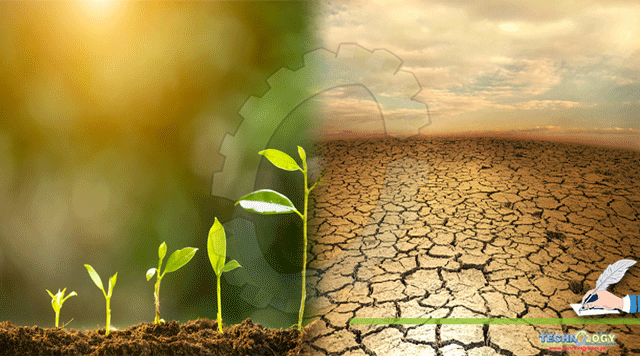Climate change is a terrible problem, and it absolutely needs to be solved. It deserves to be a huge priority.” – Bill Gates

By Dr. Farah Amin
Globally, environmental fiction perceptions and beliefs are changing. The sudden arrival of extreme events such as flooding, and slow, relentless chronic events such as drought mean that people are experiencing climate change impacts on the special places within which they live and work. It is recognized that people’s experiences with these local scale impacts provides an important impulse to review and update their global climate change beliefs and risk perceptions. In one of renowned study, the climate fiction had small but significant positive effects on several important beliefs and attitudes about global warming – observed immediately after participants read the stories.
Environmental fiction which is also known as green fiction / nature oriented fiction / and or eco-fiction is a distinct way to join natural landscapes and species, environmental issues and customarily human connection into any genre and make it come alive. Scholars of environmental communication and environmental psychology have claimed that the arts can play a serious role in influencing beliefs, attitudes, and behaviors related to eco-change and specifically current climatic change.
If we look into the climate change that we are facing in current decade in shape of continuous monsoon rain, rise in temperature, droughts and floods, only the reason came across is global warming. This can change the soil in ways that allow less rain to infiltrate into the soil, so more rain ends up in streams and rivers, leading to worse flood conditions. With fluctuation of temperature the capacity of the air to hold moisture is going to increase due to which the hydrological cycle gets intensified. Consequence is that there can be more rain in some places, and there can be less rain in other places. This climate change not only alter the earth condition but directly or indirectly affecting human lives desperately. Thus it is important to control this climate change.
The question that arise in mind is why sudden climate change occurs? Actually these changes are not unexpected or sudden but they occurs steadily by persistent expulsion of CO2 emissions into the atmosphere. Our globalized world and economic activities have largely produced the burning of fossil fuels. The 2014 report from the Intergovernmental Panel on Climate Change states that to mitigate the worst effects of climate change, which means keeping warming below 2°C, we need to achieve emissions scenarios relative to pre-industrial levels.
In order to control this worst situation, individuals directly contribute to climate change by putting more greenhouse gases into the atmosphere that causes change in temperature and impacts the water cycle. Another aspect of anthropological activities related to drought, which is water management on land like building dams or pumping groundwater for irrigation due to which humans are also directly altering the water cycle on land.
Each one of us should contribute more actively to protect our environment. The programs, awareness seminars must conduct to give more information to young generation so that they can get attached themselves with mother earth and play their active participation toward climate change. Further studies shows that climate change is going to continue even if we start limiting greenhouse gas emissions significantly right now. So, it is critical that we increasingly consider climate change issues in teaching and produce the next generation of scientists and engineers who can deal with the increasing impacts of climate change.
“The challenge of pollution and global warming is no longer the science, or the rate of innovation, but the rate of implementation: We have the clean solutions; now let’s bundle them and install them.” – Jens Martin Skibsted